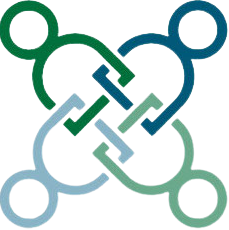Moving the field forward: GradSN represents at the 2023 Conference
One month after returning home from New Orleans, we, members of the Graduate Student Network (GradSN), like many of you, find ourselves reflecting on our experiences at the conference. Many of us were able to meet each other in person for the first time and meet the leading scholars and colleagues we admire. We found this to be a welcoming and supportive space for graduate students where we felt at home, reinforcing the feeling that we are part of a broader and vibrant movement reimagining the boundaries of higher education. At the same time, it helped us picture some of the pressing challenges in our field, which needs graduate students and early-career scholars' ideas and practice to help move us forward. In this post, we will share a summary of GradSN's participation in research methods, mentoring, and global dialogue.
One way the GradSN is providing collaborative, supportive spaces for students to take up these and other challenges and opportunities in the field is through our mentoring program. GradSN matches students with an established scholar or practitioner in the field to support their individual goals. These relationships may focus on developing research, problems of practice, work/life balance, navigating higher education job search, and more.
We were pleased to host a luncheon at the IARSLCE conference to introduce prospective mentors and mentees to this opportunity and to each other. Thirty-two conference participants registered for the luncheon, from which we were able to establish 11 matches based on common interests and connections made at the event. This program, and GradSN generally, serves future, current, and recent graduate students spanning Masters, EdD, and PhD programs. Prospective mentees valued the opportunity to “humanize their bibliographies”, meeting established scholars in the field and connecting informally around shared research interests. Mentors appreciated meeting scholars newer to the field and establishing shared conversations across generations of scholars dedicated to community engagement.
In the GradSN’s sponsored roundtable, “Researching community engagement: current methodological approaches, challenges, and opportunities,” we presented the results of the analysis of 36 dissertations on community engagement published in the last five years. Most dissertations focused on institutions, impact, and implementation studies, while only 12 focused on equity and societal advancement. Most manuscripts used qualitative methodologies and case studies. Their sampling privileged faculty members and public institutions.
More than 40 colleagues participated in the discussion, where we debated on the absence of the community in our research on SLCE, the reproduction of power imbalances and racism, the tension between the SLCE field and our disciplines, the need for mentorship for graduate students and training for potential academic advisors, the challenges of cross-cultural studies in a US-centered field, and the possibilities for mix-methods studies. These conversations will shape the GradSN professional development support, dissertation repository, and a proposal for a special issue in the IJRSLCE.
Another roundtable, organized with former GradSN member Paulette Dougnac, called “Can we learn from each other? Towards a global dialogue in community engagement” gave us a space for US and not-US-based scholars to explore the need and challenges of collaboration among different cultures beyond tokenism. In this event, attended by 17 participants, we shared our experiences in trying to internationalize our field and the problems experienced in internationalized practices (such as global service learning or the expansion of US accreditations in other countries).
We deliberated about the need to embrace conceptual diversity across cultures and languages, revert the avoidance of talking about failures and being vulnerable (under the pressure of academic excellence, justifying funding or job positions, or accreditations), and acknowledge the inevitable discomfort generated by a critical view of global power imbalances. We believe the field will grow with more voices participating in the conversation. From this conversation, we will share recommendations with the IARSLCE board to create a special interest group on global dialogue and opportunities to strengthen future conferences.
The 2023 IARSLCE Conference was a wonderful space for the service learning and community engagement communities to regather after emerging from the pandemic. While the GradSN persisted through the virtual period, the in-person gathering provided momentum and inspiration for our post-pandemic chapter. GradSN is more than a professional development space for graduate students; it can contribute to pushing the overall field forward by supporting newer scholars and facilitating dynamic conversations and research on the cutting edge of community-engaged learning. Current and prospective graduate students are invited to complete the GradSN interest form and request a mentor. Established scholars and practitioners are invited to serve as a mentor.
Authors:
Emily Phaup, Ph.D. is the current Chair of the Graduate Student Network. She serves as the Professional Development Manager for Campus Compact and leads the Northwest 5 Consortium for Community Engaged Learning. She can be reached at ephaup@compact.org.
Matías G. Flores (Chile) is a Ph.D. Candidate in Development Sociology, at Cornell University. He uses a socio-historical approach to study community engagement in Chile and Latin America. He can be reached at mf785@cornell.edu
Heather Craigie is the Associate Director of John Carroll University’s Center for Service-Learning and Social Action. She is completing an Ed.D through Northeastern University focused on critical consciousness development through community-engaged leadership positions. She can be reached at hcraigie@jcu.edu.
